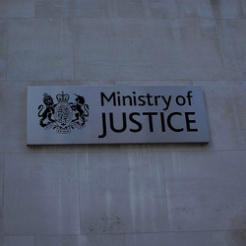NCVO and Clinks, the infrastructure body for criminal justice charities, have announced a joint project to monitor the involvement of civil society organisations in Transforming Rehabilitation, the government’s flagship probation programme.
The programme sees 21 prime providers, mostly large private sector organisations, take on responsibility for probation services for medium- and low-risk offenders. They will also be responsible for running payment-by-results programmes to reduce reoffending.
Clinks and NCVO are concerned that charities have been used to market the schemes to the public, while in fact the major role is being played by private sector prime providers. They have asked charities, whether or not they are involved in the programme, to fill out an initial survey to monitor how it runs.
Nick Davies, public services manager at NCVO, said that the way the programme had been marketed was a concern to charities, just as it had been with the Work Programme, a similar government programme to help people back to work.
“The 2011 press release launching the Work Programme hailed it as a ‘boost to the Big Society’ with ‘more than 400 voluntary sector groups’ involved in delivery,” he wrote in a blog published today.
“Similarly, the more recent Transforming Rehabilitation announcement makes big play of the fact that ’75 per cent of the 300 subcontractors named in the successful bids are voluntary sector or mutual organisations’.
“Unfortunately, as we now know, the Work Programme hasn’t quite been the ‘boost to the Big Society’ that the government promised.”
He said NCVO’s final report on the Work Programme, Stepping Stones, suggested a number of ways large government contracting programmes could be improved. But he questioned whether those lessons had been learned.
“It is this question which has led to our partnership with Clinks and the launch today of a year-long programme to monitor the role of voluntary sector providers in and alongside Transforming Rehabilitation,” he wrote.









